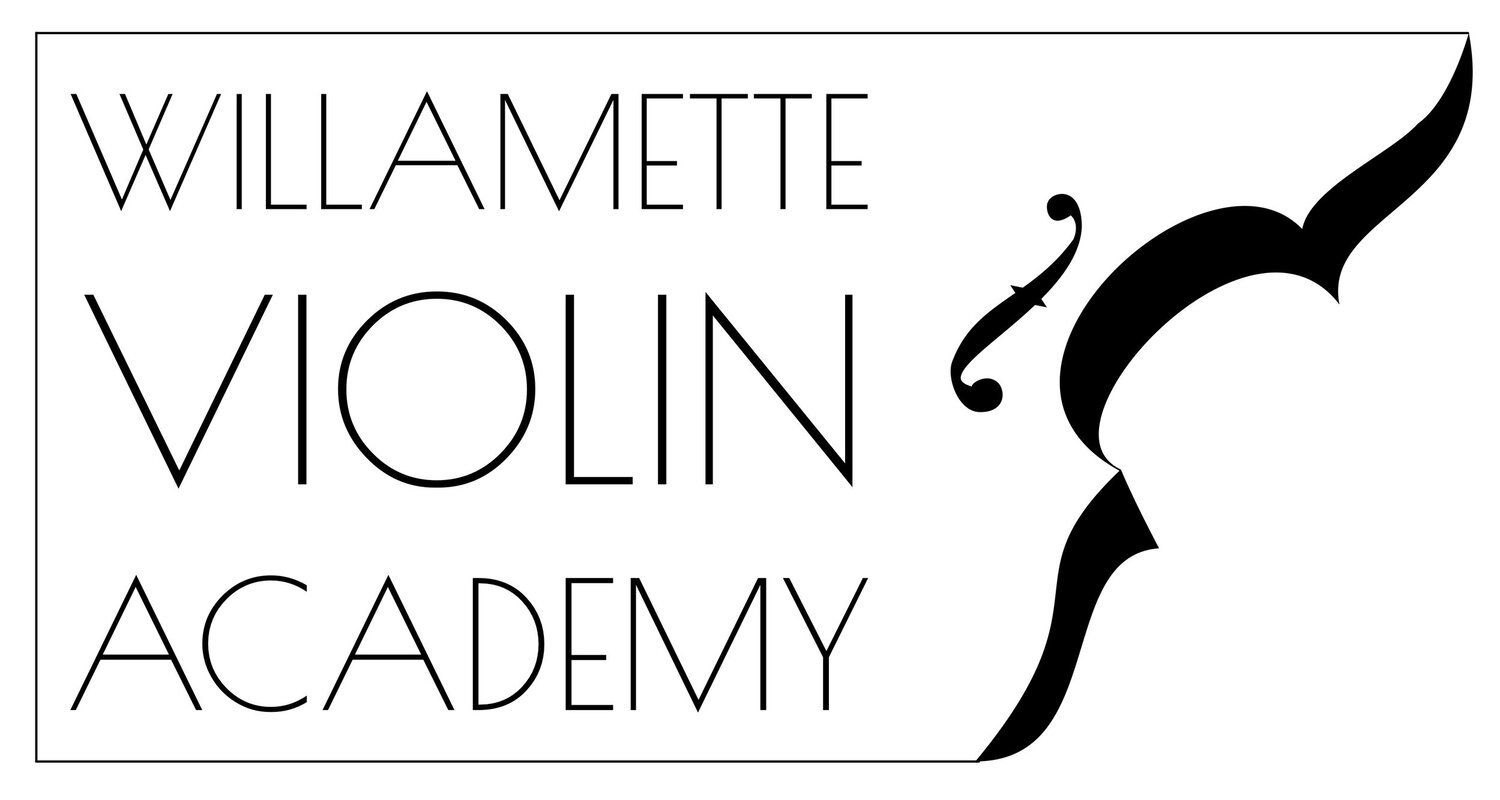Frequently Asked Questions
Why the violin? Why not trumpet, drums, or bassoon?
Children should play whatever instrument they gravitate toward. Many are attracted to the violin because such a large proportion of the classical masterworks are written for the violin. Violinists' "daily grind" consists of performing the most beautiful melodies in the world with symphonies, string quartets, and as soloists. The violin is a social instrument, and from a young age children enjoy the portability and versatility of violin in music-making with their peers and teachers. The violin is also a particularly challenging instrument. The challenge brings deep rewards, educationally and personally: violinists study never-ending layers of aesthetic principles, compositional structures, technical concepts, and aural phenomena. Violin students also join a centuries-old tradition of violin virtuosos, providing role models from today's greats like Itzhak Perlman to history's heroes like Wolfgang Amadeus Mozart.
Is the Willamette Violin Academy the right place for my child, and for me?
The Willamette Violin Academy firmly believes that every child can develop excellent ability as a violinist, given a supportive, immersive, and high-quality educational environment. At the Academy, parents take an active role in the learning process, attending each lesson and helping the child practice at home every day (until the child is old enough for independent study, usually around sixth grade). Parents of beginners learn the basics of the violin with their child, and parents do not need any musical background or talent to be successful. All that is necessary is the the belief in your child, the desire to help them develop, and the time to dedicate to daily practice and lessons. Parents agree to practice daily with their child at home and to bring their child to both individual and group lessons.
I think my child is too advanced for a Suzuki teacher. At what age do students "graduate" from Suzuki?
The Suzuki Method begins education at very young ages, but Suzuki education is lifelong, and there is no age at which a Suzuki student switches or graduates to another approach. Suzuki teaching follows a philosophy about how people learn best, and is not level-specific. The Suzuki philosophy states that people learn best in immersive environments; where mastery is built in small steps; where learning is spiral, integrating new skills with old ones; where the person's entire ability must be developed in order to develop specific skill; and where learning happens at the individual's own pace.
Is it true I have to practice with my child every day?
Yes! But not forever. Young children are not ready to steer their own education. Suzuki parents and teachers take the responsibility for the child's entire experience, creating an immersive and educative environment. Repetition and regularity are essential for skill development and for setting expectations for the child. It is not the child's responsibility to want to practice or to be "motivated." Rather, it is the parent's responsibility to make practice as routine and unremarkable as brushing the child's teeth. And it is the teacher's responsibility to counsel the parent through the process. The rewards of building a daily violin practice habit are plentiful. By the time a "Suzuki kid" reaches age 9, on average, a supported transition begins toward the child practicing alone.
How does Suzuki teach children to be creative if they're taught through imitation?
Classical music is a sophisticated tradition, centuries old. The art of the violin and the aesthetics of classical music are deep fields of study, which begin with imitation and end with personal expression. Classical composers, Mozart included, learned to compose by tracing scores of their predecessors—they learned the craft and went on to become quite creative.
What is a summer Suzuki Institute, and should I attend?
Suzuki Institutes are week-long summer camps for Suzuki families, and yes! You should go! Suzuki education is a lifestyle, and Institute-going is perhaps the most fun part. Children learn as much in a week of Institute as a term of lessons, and Institute attendance provides the social satisfaction and inspiration to make violin a part of children's identity, their passion, and their priorities. For students who have graduated from Suzuki Book 10, advanced Institutes around the country provide a similar experience, though parents often do not accompany.
Can Suzuki students read music? I've heard they learn by ear.
Suzuki students learn by ear when they are too young to read or write their own names. Just as they learn their native languages before learning to read them, Suzuki violin students learn to identify musical structures by ear before learning to identify the symbols on paper. Suzuki students learn to read excellently, and they participate in the same orchestras and chamber music programs as non-Suzuki students (they are often the leaders!).
